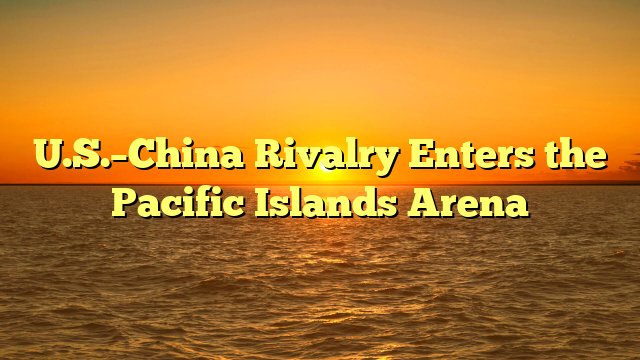
The rivalry between the United States and China is intensifying in a new arena: the Pacific Islands. Once overlooked in global geopolitics, these small island testimonial Naga169 nations have become strategic battlegrounds for influence, resources, and diplomatic recognition.
China’s outreach has expanded dramatically in recent years. It has signed security agreements, offered infrastructure loans, and funded government buildings across the region. In the Solomon Islands, a controversial 2022 security pact with Beijing sparked concern in Washington and Canberra over potential military access.
In response, the United States has reopened embassies in Tonga and the Solomon Islands and pledged billions through the Pacific Partnership Strategy. Australia and New Zealand, traditional powers in the region, have stepped up aid and security cooperation as well.
At the heart of the competition lies the question of sovereignty. Many Pacific leaders insist they will not be pawns in a superpower rivalry. “We are not chess pieces,” said Fijian Prime Minister Sitiveni Rabuka. “We are nations with our own priorities.”
Climate change, not military power, remains the region’s top concern. Rising sea levels threaten entire communities, yet major powers often tie climate aid to geopolitical loyalty. Critics say this undermines trust and regional unity.
As Beijing and Washington continue their diplomatic tug-of-war, the Pacific Islands are asserting a message rarely heard during the Cold War: neutrality, on their own terms.





